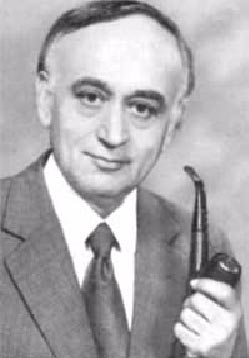Dadoo, Yusuf Mohamed (Mota)
Born: Krugersdorp, 5 Sept 1909 – Died: London, England, 19 Sept 1983
A medical doctor and politician, was the son of a retailer, Mohamed Mamoojee Dadoo, who emigrated from Kholvad in India to South Africa in the 1880′s.
He received his primary education at the Krugersdorp Coloured School and then proceeded to the Newtown Indian Government School in Johannesburg. After matriculating at Aligarh College in India in 1927, Dadoo went to London, England, to study medicine. Within a few months he was arrested for participating in political demonstrations. In an attempt to curb his political activities, his father had him transferred to Edinburgh in Scotland, where he completed his studies. At this time he started reading Marxist literature, but only entered the political arena in real earnest when he returned to South Africa in 1936. Soon he was a leader of the opposition against the moderate leadership in the Transvaal Indian Congress (TIC) and by 1938 became a founder member and first secretary of the Non-European United Front (NEUF). From the start he attempted to establish a nonracial alliance against the government’s oppressive legislation. In 1939 he also became a member of the Communist Party of South Africa (CPSA, South African Communist Party (SACP) after 1953).
After the outbreak of the Second World War (1939-1945) the CPSA and NEUF actively opposed South Africa’s participation. Dadoo, as one of the spokespersons, described the war as “an imperialistic war, and therefore an unjust war”. He was twice arrested for allegedly inciting the people against the government. With the entry of the USSR into the war in 1941 the CPSA felt that the character of the war had changed and that South Africa’s participation could be now justified. With Moses Kotane Dadoo had to advocate this new stance.
During the 1940s Dadoo played a leading part in various political campaigns. He was involved with the bus boycott by Alexandra residents in 1944; the CPSA and African National Congress (ANC) national anti-pass campaign of 1944 to 1946; the African miners’ strike of 1946; and the passive resistance of the South African Indians that commenced in 1946. Dadoo was also elected as president of the TIC and as the Transvaal leader of the Indian Passive Resistance Council in 1946. At this stage he was already chairperson of the Johannesburg District Committee of the CPSA and a member of the Central Committee of the CPSA.
Dadoo, Dr G.M. Naicker (president of the Natal Indian Congress) and Dr A.B. Xuma (president of the ANC) issued a joint statement, the so-called Doctors’ Pact, in March 1947 in which they stressed the co-operation of all blacks with a view to gaining political rights. Later in 1947 Dadoo and Naicker went to India to enlist support for South African Indians’ opposition to restrictive legislation. In 1948 Dadoo was elected president of the South African Indian Council (SAIC). Subsequently he went abroad again – this time to attend the session of the United Nations in France.
Dadoo was actively involved with the country-wide resistance to the removal of the coloureds from the joint voters’ role in the Cape Province in 1951. In the same year he was elected as a member of the Joint Planning Council of the Defiance Campaign which was aimed at unfair legislation and which commenced in 1952. A month prior to this Dadoo and three other leaders were ordered by the authorities to resign from all organizations and they were banned from attending meetings. Dadoo ignored the ban and continued to address meetings, upon which he was arrested. He was released only to be rearrested in August 1952. He received a suspended prison sentence.
Dadoo was increasingly subjected to restrictions in 1953. He was elected as a member of the newly founded Central Committee of the SACP. As a result of the restrictions imposed upon him he could not attend the Congress of the People in June 1955. Out of recognition for the role he played in establishing a multiracial alliance against apartheid the honorary title Isitwalandwe (a title once bestowed upon Xhosa heroes for exceptional courage and service and by the ANC upon a hero of the national liberation struggle) was bestowed on him in absentia at this meeting.
With the declaration of a state of emergency and the banning of the ANC and the Pan-Africanist Congress by the government in April 1960, Dadoo escaped through Bechuanaland (Botswana) to London. At the request of the SACP and the SAIC Dadoo organized international support for and solidarity with the struggle against apartheid. Consequently he acted on a broad front, amongst others as representative of the ANC which he joined in 1969 after ANC membership had been opened for all races. In the same year he became vice-chairperson of the ANC’s Political-Military Council. In 1972 he was elected as national chairperson of the SACP. He was also a member of the presidential committee of the World Peace Council and received various orders and decorations, especially from East Block countries.
Dadoo, whose popular nickname was Doe, was married thrice: first to Ilsa, then to Maryam and lastly to Winnie – the first two marriages ended in divorce. He had two daughters, one from Ilsa and one from Winnie. Dadoo died from cancer in a London hospital a few days after his seventy-fourth birthday. He was survived by his wife Winnie and his two daughters. His funeral in the Highgate Cemetery was accompanied by various speeches and political songs. In South Africa the government prohibited gatherings intended to honour Dadoo posthumously.

Dadoo, Yusuf Mohamed (Mota)
